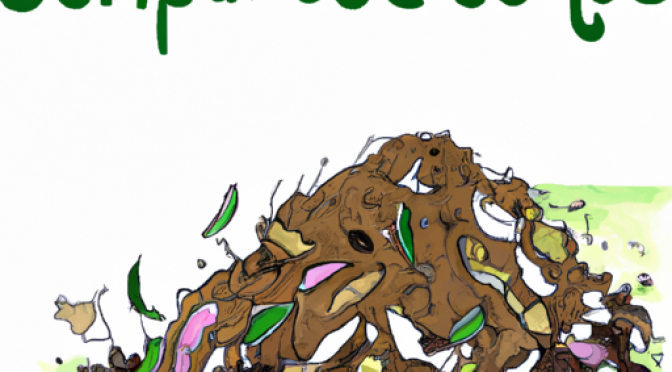Introduction
Compost is a natural material produced by the decomposition and breakdown of organic waste. During the composting process, organic materials such as kitchen waste, garden waste and plant residues are transformed by micro-organisms into nutrient-rich, soil-like material.
The composting process
The composting process consists of several steps. First, the organic matter is cut or chopped into small pieces to make it easier to decompose. Next, the organic material is placed in a composting bin or compost bin, where microorganisms begin to break it down.
Micro-organisms, such as bacteria and fungi, break down organic matter and produce heat in the process. This heat helps further decomposition and speeds up composting. During composting, it is important to stir the compost regularly to maintain the right temperature and moisture content.
The composting process can be time-consuming, usually taking several months or up to a year. However, at the end, the compost is ready to use and provides an excellent source of nutrients for plants.
Using compost
Compost is often used as a soil amendment in gardens and small gardens. Compost is rich in nutrients such as nitrogen, phosphorus and potassium, which are essential for plant growth and development.
Mixing compost into the soil can improve its structure and water retention capacity. It also helps the activity of soil micro-organisms and organisms, which promotes healthy plant growth.
Conclusion
Compost is a natural and sustainable way to recycle organic waste. The process of composting helps to break down organic matter and convert it into nutrients that plants can use. Using compost improves soil structure and nutrient supply, promoting healthy plant growth and development.
∑: compost, composting, organic, process, organisms, material, matter, nutrients, growth
